Meet the 25 wealthiest members of Congress
Madison Hall,Angela Wang

- We estimated the net worth of members of Congress by analyzing financial-disclosure reports.
- The reports cover 2020 and provide the most up-to-date estimate of members' net worth.
Each year, every member of Congress is required to file a detailed report disclosing their financial holdings. Designed for transparency, the disclosures provide insight into each member of Congress' wealth and assets — and occasionally reveal potential conflicts of interest and violations of federal law.
Insider compiled members' annual disclosures filed this year, analyzing thousands of pages of documents to estimate the minimum and maximum net worth of members of the US Senate and the US House of Representatives, including nonvoting delegates. Members disclose the value of their assets in broad ranges.
The documents cover 2020, a year in which the world's richest people grew their fortunes by trillions of dollars. The 2020 financial disclosures are the most up-to-date financial documentation from Congress — disclosures from 2021 are not required to be filed until mid-May. Filers for the 2020 fiscal year were allotted an extra three months to submit their disclosures because of the pandemic.
Three newer members of Congress — Reps. Troy Carter, Melanie Stansbury, and Jake Ellzey — have not filed their official financial-disclosure reports. Insider used these members' "candidate reports," some of which include financial data from 2021.
Members of Congress come from a wide range of backgrounds — from local politics to business and entrepreneurship to professional sports — and their fortunes vary greatly. The wealthiest 15 members together had an estimated net worth of at least $1.3 billion, accounting for half of Congress' total estimated wealth.
Read more about Insider's methodology.
Starting at number 25, here are the wealthiest members of Congress based on their minimum estimated net worth:25. Rep. Sara Jacobs, a Democrat from California: $21,428,125

A newcomer to Congress in 2021, nearly all of Jacobs' wealth is stored in a trust that was created in 2009. The trust contains government securities, mutual funds, and more than $6 million in stock of Qualcomm, a semiconductor company co-founded by her grandfather, Irwin M. Jacobs.
Other notable stocks owned by Jacobs includes more than $100,000 invested in stocks of Apple, Microsoft, and Mastercard.
Jacobs listed one liability in her financial disclosure: a mortgage on a Washington, DC, property worth at least $500,000.
24. Rep. John Rose, a Republican from Tennessee: $23,362,065
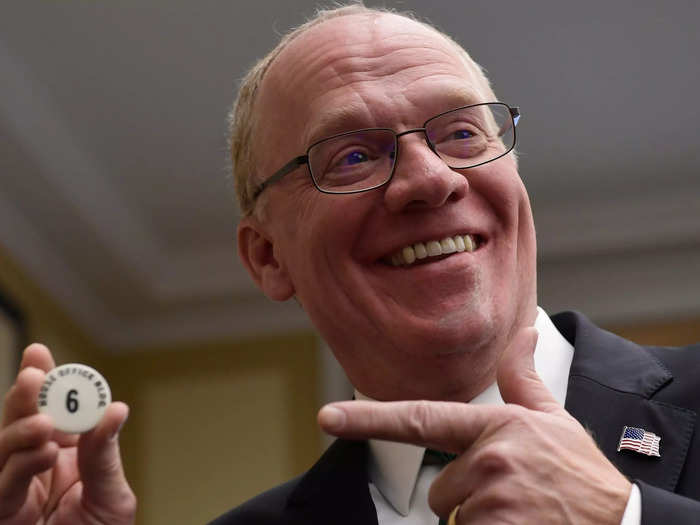
Rose, who joined Congress in 2019, reported an ownership stake in several residential buildings across the country. Rose also owned at least $500,000 worth of stock in Citizens Bank and more than $100,000 worth of Alphabet stock, and he reported 100% ownership of Rose Farm, worth between $5 million and $25 million.
Rose submitted information for one liability: a monthly balance on his credit card amounting to at least $15,001.
23. Rep. Fred Upton, a Republican from Michigan: $24,692,218

Upton's fortune mainly derives from an appliance company that his grandfather founded, Whirlpool, which the congressman reported holding at least $1 million of stock in. Upton also reported having at least $1 million in Pepsi stock. Other notable holdings of Upton's include Apple, Raytheon, Amazon, Alphabet, Facebook, and Texas Instruments.
The representative reported one liability: a mortgage worth at least $15,001 through JPMorgan Chase.
22. Rep. Dean Phillips, a Democrat from Minnesota: $24,778,495

Phillips has an ownership stake in several businesses, various stock holdings, mutual funds, government securities, various life insurance policies, and hedge funds. He is a cofounder of Penny's Coffee, a Minnesota-based coffee shop chain, a former chairman for Talenti Gelato, and the former CEO of Phillips Distilling Company.
Phillips held more than $250,000 worth of Apple stock, at least $50,000 worth of Facebook stock, and over $1 million in the SPDR S&P 500 Trust ETF.
Phillips, who joined Congress in 2019, reported at least $2 million in liabilities in the form of mortgages.
In July, Phillips placed his assets in a qualified blind trust approved by the House Committee on Ethics, meaning he'll retain little control over his assets while he's a member of Congress.
21. Rep. Kevin Hern, a Republican from Oklahoma: $26,761,380
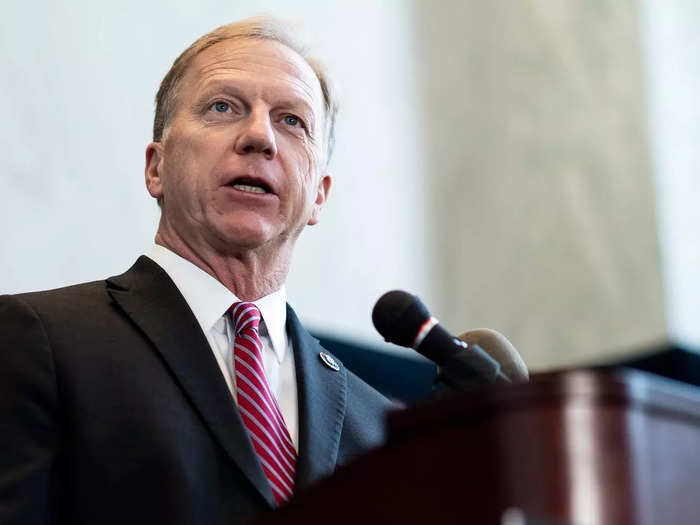
Hern's wealth is split between trusts and IRAs belonging to him and his immediate family. The trusts contain a combination of mutual funds, stocks, and electronic funds. Notable stocks held by Hern and his family included more than $250,000 worth of Amazon, at least $100,000 worth of Alphabet, and more than $530,000 worth of Microsoft.
Hern disclosed two liabilities: at least $500,000 used to purchase a McDonald's restaurant, and at least $1 million that his spouse used to buy a separate company.
In 2021, Hern violated the STOCK Act by failing to properly disclose stock trades worth at least $1.06 million and as much as $2.7 million. Hern joined the House of Representatives in 2018.
20. Rep. Kathy Manning, a Democrat from Michigan: $27,202,287
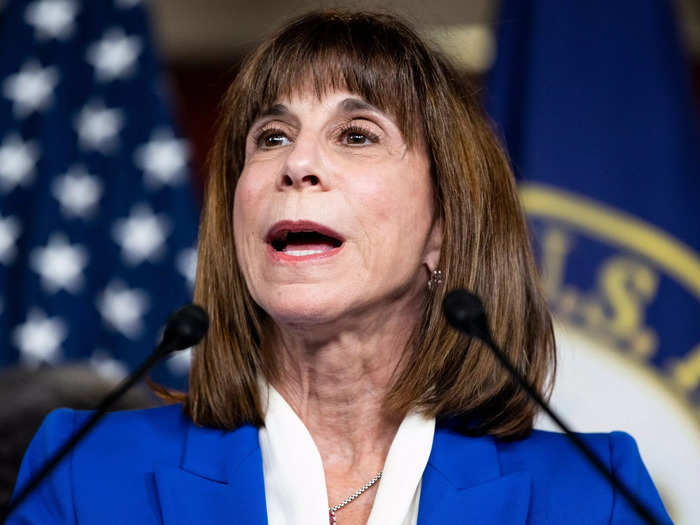
Manning's fortune is split among government securities, mutual funds, exchange-traded funds, real property, and stocks. Notable stocks that Manning or her spouse held included Alphabet, Apple, Starbucks, Disney, Microsoft, Nike, Johnson & Johnson, and Pfizer.
Manning also reported an ownership interest in Stonefield Cellars Winery in North Carolina.
The congresswoman reported two liabilities owned by her spouse: lines of credit amounting to more than $1.5 million.
She is a newcomer to Congress, joining the ranks in 2021.
19. Rep. Don Beyer, a Democrat from Virginia: $29,805,092

All of Beyer's assets were jointly owned, in a combination of stocks, government securities, and real property.
Beyer reported at least $8.6 million in liabilities, almost all of which were mortgages on various properties he owned.
18. Rep. David Trone, a Democrat from Maryland: $32,927,094
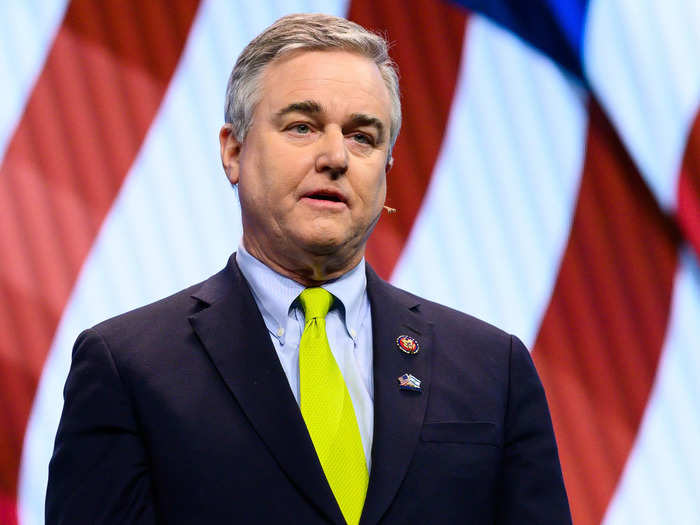
Trone's wealth is divvied up among mutual funds, exchange-traded funds, and ownership of several shops across the country specializing in wine, beer, and spirits: Total Wine & More.
Trone's wife independently owned stock in Alphabet, Apple, and Pepsi, among others. He reported one liability in his financial filings: a business loan worth at least $5 million from PNC Bank.
Trone is a relatively new member of Congress — he assumed office in 2019.
17. Rep. Jay Obernolte, a Republican from California: $39,250,014
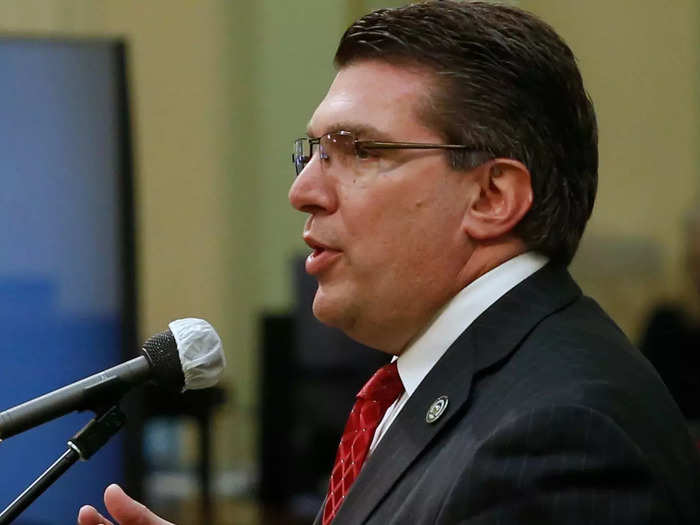
The bulk of Obernolte's fortune stems from his ownership of FarSight Studios, a video-game company in Big Bear Lake, California, that he launched in 1988. Obernolte, who joined Congress in 2019, also reported several investments worth millions in Vanguard tax-managed mutual funds.
Obernolte did not report any liabilities or debts.
16. Rep. Scott Peters, a Democrat from California: $39,738,062

Peters' wealth is mostly in government securities, though he and his spouse have also invested in several mutual funds. The congressman's wife, Lynn Gorguze, is the president and CEO of a private equity firm, Cameron Holdings.
Peters reported two liabilities worth at least $30,000 in total, for "revolving credit."
15. Rep. Nancy Pelosi, a Democrat from California: $46,123,051
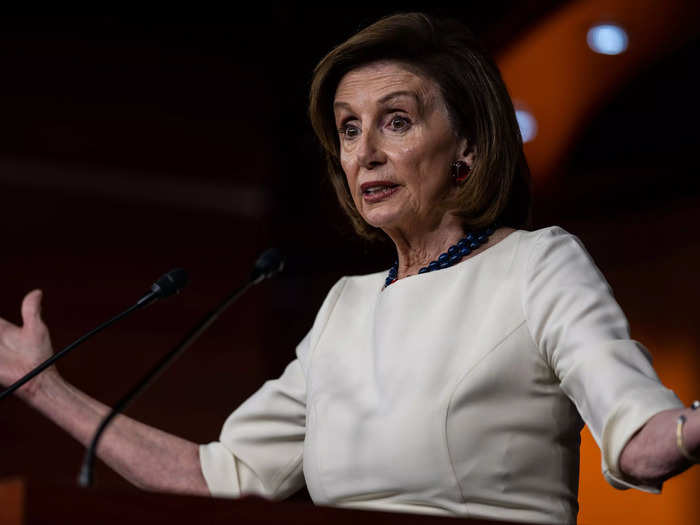
Pelosi, the speaker of the House, reported personal wealth spread out among property holdings, mutual funds, and stocks owned by her husband. The only assets that Pelosi reported owning or joint-owning were her home in Napa, California, and a Wells Fargo bank account containing less than $15,000.
Pelosi's husband had holdings in corporations such as Slack, Tesla, Disney, Visa, Salesforce, PayPal, Alphabet, Facebook, and Netflix — companies that together spend tens of millions of dollars each year lobbying the federal government.
Pelosi reported at least $20 million in liabilities that mostly involved mortgages on properties in California and Washington, DC.
14. Rep. Frank Mrvan, a Democrat from Indiana: $49,848,004

Before going to Washington, DC, Mrvan worked as a pharmaceutical sales representative and a mortgage broker.
Much of Mrvan's wealth — estimated at about $50 million at minimum — is contained in an Indiana public employees' retirement fund. Mrvan's next-largest asset was his wife's 401(k), valued at $100,000 to $250,000.
Mrvan, a newcomer to Congress, reported three liabilities in his financial filings worth at least $270,000 in total: his home mortgage, an auto loan, and credit-card debt.
13. Rep. Suzan DelBene, a Democrat from Washington: $52,156,097
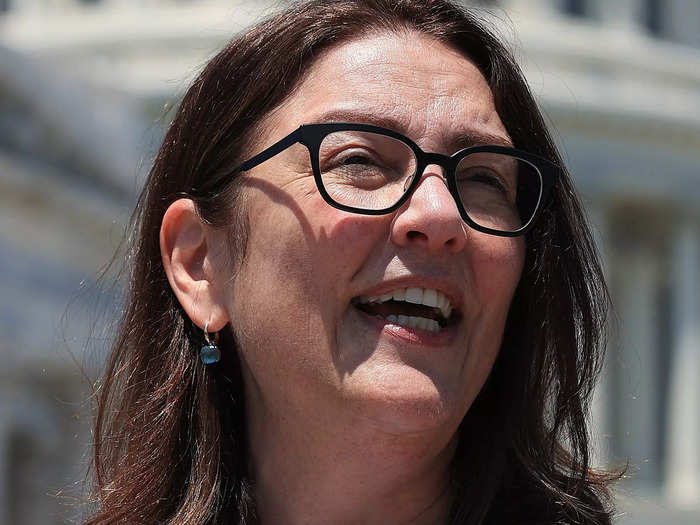
Before joining Congress, DelBene was an executive at Microsoft. DelBene and her husband reported at least $1.1 million worth of shares in her former company.
DelBene's wealth is spread out among mutual funds, exchange-traded funds, and real-estate funds.
In late 2021, DelBene appeared to violate the STOCK Act by improperly disclosing her husband's massive sale of Microsoft stock days before President Joe Biden nominated him for an administration post. DelBene's office denied that the congresswoman violated the law, citing an email from the Committee on House Ethics.
12. Rep. Peter Meijer, a Republican from Michigan: $60,514,285

A part of the family behind the eponymous Midwestern grocery chain, Meijer reported that the bulk of his wealth was held in a "generation-skipping trust" that contained, among other assets, stock in Johnson & Johnson, Home Depot, Tesla, and Visa.
Meijer reported at least $1.95 million in liabilities in the forms of a mortgage, lines of credit, and promissory notes. He joined Congress in 2021.
11. Rep. Roger Williams, a Republican from Texas: $67,438,045

Williams' wealth is primarily split among mutual funds, a few select stocks, real property, and the ownership of several car dealerships in Texas worth more than $5 million. Williams also reported a stake in two aircraft-leasing companies.
The congressman reported $4 million in liabilities in the forms of lines of credit, mortgages, notes payable, and a loan. Williams recently violated the STOCK Act by failing to properly file three stock transactions by his wife.
10. Rep. Doris Matsui, a Democrat from California: $73,872,062

Matsui's husband, Roger Sant, is the founder of the AES Corporation, a Fortune 500 holding company specializing in electricity generation and distribution.
Matsui's listed holdings were spread out among exchange-traded funds, money-market funds, limited liability companies, and trusts. She reported at least $165,000 in liabilities in the form of credit-card debt through various banks.
9. Rep. Trey Hollingsworth, a Republican from Indiana: $74,629,062
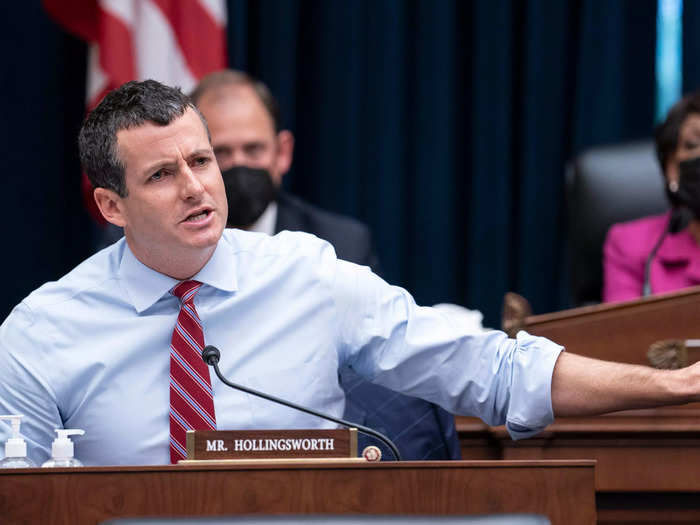
Hollingsworth's wealth primarily comes from his involvement with Hollingsworth Capital Partners, a Tennessee group that builds and markets industrial facilities in 17 states, according to his financial disclosure.
8. Sen. Richard Blumenthal, a Democrat from Connecticut: $85,231,232
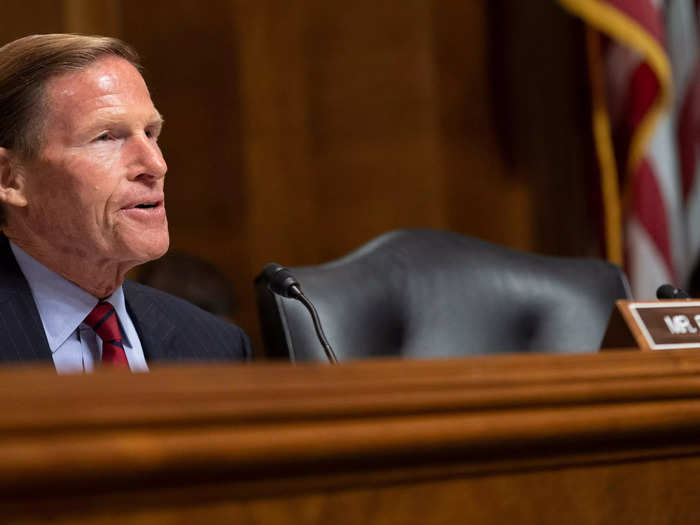
Blumenthal's fortune is held almost entirely by his wife, Cynthia Malkin, with millions of dollars reported in various hedge funds, stocks, and real estate and property partnerships. Malkin's father, Peter L. Malkin, is the chairman emeritus of Empire State Realty Trust — a commercial office and retail leasing agency for units across Manhattan including the Empire State Building — and the chairman of Malkin Holdings.
Blumenthal's only liability listed in his financial filings was a 30-year mortgage on his home that his wife took out in 2011.
7. Sen. Mitt Romney, a Republican from Utah: $85,269,083
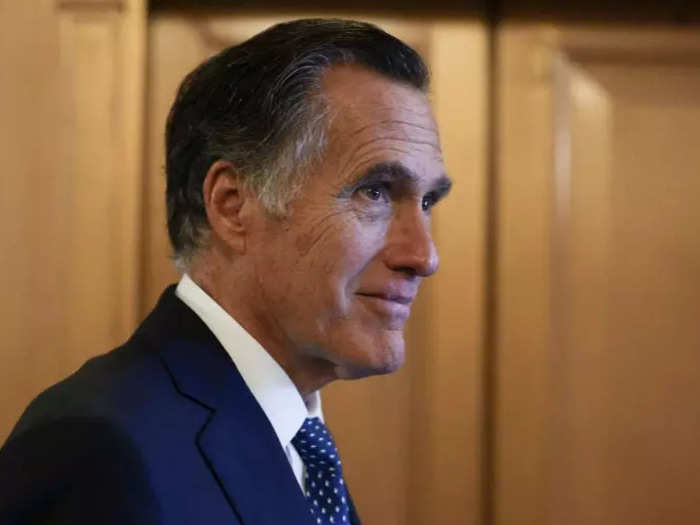
The bulk of Romney's wealth derives from his success at Bain Capital, a private-equity investment firm where he rose to CEO. And much of Romney's fortune is in Goldman Sachs mutual funds.
Romney's wife, Ann, also boasts an extensive portfolio that includes millions invested in private-equity and hedge funds.
Romney reported at least $4.5 million in liabilities from his wife; each liability was listed as a "capital commitment."
6. Sen. Mark Warner, a Democrat from Virginia: $93,534,098

Before venturing into politics, the 3-term senator and former Virginia governor ran a venture-capital firm, Columbia Capital, and a telecom company, Capital Cellular Corporation. Warner's wealth is divvied up among mutual funds, private-equity funds, and hedge funds.
5. Sen. Dianne Feinstein, a Democrat from California: $96,518,036

The majority of Feinstein's wealth is from her husband, Richard Blum, according to her financial filings. Blum is an investor and the president and chairman of Blum Capital, a private equity company. Feinstein herself reported over $1 million in a deposit account, while a considerable portion of her wealth — at least $25 million — was held in a blind trust.
Feinstein listed three liabilities, each of which belonged to her husband, for a combined amount of at least $3 million.
Feinstein was one of 48 members of Congress who Insider and other media organizations found in 2021 to have violated the STOCK Act.
4. Rep. Vern Buchanan, a Republican from Florida: $113,384,088

Buchanan's wealth primarily comes from his ownership of several car dealerships, in addition to a limited liability company that was labeled as "Aircraft Holding & Leasing" and valued at $25 million to $50 million. Buchanan also founded a printing company, American Speedy Printing, in the late 1970s.
Buchanan listed several liabilities in his financial filings worth at least $14 million, including loans for a plane and a yacht connected with the LLC.
Buchanan may have the authority to write American tax policy in coming years, as the congressman is likely to become the leading GOP member of the Ways and Means Committee after Rep. Devin Nunes announced his resignation to become the CEO of a new social media company founded by former President Donald Trump.
3. Rep. Darrell Issa, a Republican from California: $115,850,012
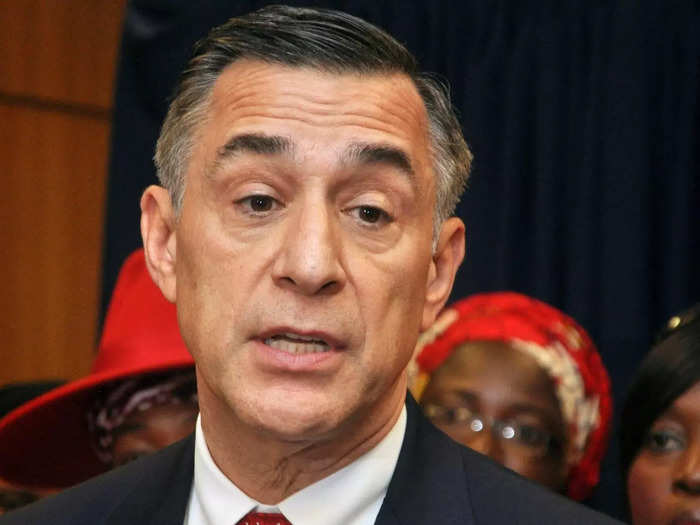
Much of Issa's fortune comes from a car-alarm system called Steal Stopper and his time as the CEO of Directed Electronics. His financial filings indicated that each of Issa's assets is jointly owned. Issa did not report owning any individual stocks — his wealth is largely held in diversified stock funds and his ownership of properties in California and Ohio.
Issa listed one liability: a margin account holding him liable for over $50 million.
The congressman served for 18 years in Congress before briefly leaving and becoming President Donald Trump's nominee to head the US Trade and Development Agency. He rejoined Congress in 2021.
2. Rep. Michael McCaul, a Republican from Texas: $125,880,292

McCaul is thought to be the second-richest person in Congress, though none of the assets or holdings reported in his 65-page financial disclosure were his alone, belonging to his wife or dependent children. The bulk of his fortune is from his wife, Linda, the daughter of the founder of the media giant iHeartRadio.
The McCaul family notably reported millions in limited liability companies and iShares funds, and at least $250,000 worth of Netflix stock.
McCaul did not list any liabilities or debts in his financial disclosure.
1. Sen. Rick Scott, a Republican from Florida: $200,327,223

Scott, who assumed office in 2019, cemented his No. 1 spot on the list through his extensive holdings in stocks, bonds, LLCs, private-equity funds, gold trusts, and treasury notes. Scott holds relatively few individual stocks.
The senator is the cofounder of two healthcare companies: Columbia Hospital Corporation (now HCA Healthcare) and Solantic. He also worked as a venture capitalist, investing in several technology and healthcare companies.
Scott did not list any liabilities or debts in his filings.
The five least-wealthy members of Congress
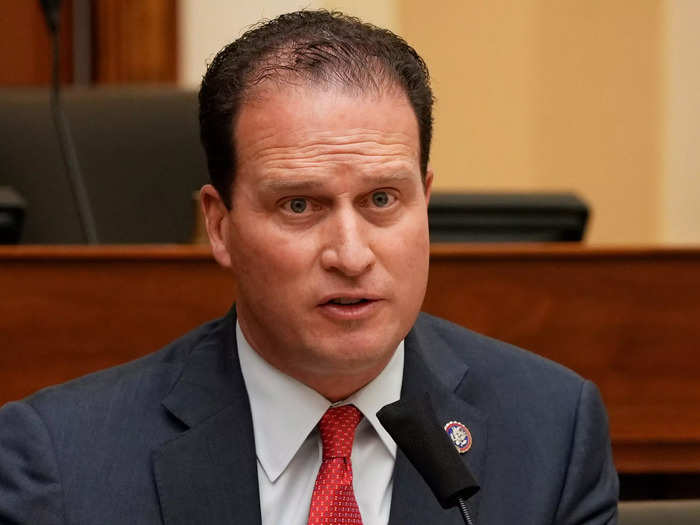
A few members of Congress' minimum sum of liabilities far surpassed the minimum sum of their disclosed assets.
These five members' negative estimated wealth stemmed from high-priced mortgages:
- Rep. Lucille Roybal-Allard, a Democrat from California: -$1,008,000
- Rep. Steven Horsford, a Democrat from Nevada: -$1,047,992
- Sen. Cynthia Lummis, a Republican from Wyoming: -$1,401,991
- Sen. Tammy Duckworth, a Democrat from Illinois: -$1,877,936
- Rep. August Pfluger, a Republican from Texas: -$2,000,002
Methodology

Members of Congress are required to disclose the value of their assets only in broad ranges, such as $15,000 to $50,000. Insider's calculations are conservative estimates based on the minimum values disclosed by members. Each member of Congress' wealth was calculated by subtracting the sum of their minimum reported liabilities from the sum of their minimum asset values.
Lawmakers are not required to disclose certain classes of personal assets, such as the value of their personal residence, so these assets are not included in Insider's calculations.
Insider's analysis does not include four members of Congress whose disclosures were uniquely complicated and lengthy, comprising hundreds of pages of handwritten or scanned documents: Reps. Ro Khanna of California, Vicente Gonzalez of Texas, Kurt Schrader of Oregon, and Harold Rogers of Kentucky.
READ MORE ARTICLES ON
Popular Right Now
Popular Keywords
Advertisement